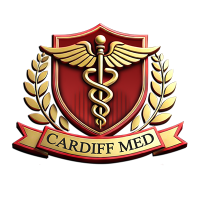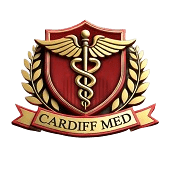MSc in Renal Medicine
This part-time, online MSc program equips healthcare professionals with advanced skills to manage renal diseases, including chronic kidney disease and acute kidney injury. The course provides practical knowledge, scenario-based learning, and clinical insights.
Overview
The MSc in Renal Medicine is a part-time, online program that helps healthcare professionals develop advanced skills in managing renal diseases, including chronic kidney disease and acute kidney injury. The course is designed to be flexible, allowing professionals to balance work and study, while providing in-depth knowledge and practical training in the field of renal medicine. Graduates receive an internationally recognized qualification from the University of South Wales.
Entry Requirements
Since our online renal master's course is conducted entirely online, it's accessible to both UK and international registered healthcare professionals.
Applicants will typically hold a first degree or equivalent (including international qualifications) in a relevant professional healthcare or Public Health related field, such as a medical or nursing degree.
Registered healthcare professionals without these recognised qualifications will be considered on an individual basis and a wide range of prior experience may be taken into account. In some cases, applicants may be asked to submit a piece of work for assessment in order to confirm that they are able to work comfortably at postgraduate level, and demonstrate the requisite clinical and professional knowledge.
- A copy of your updated CV including your address and date of birth.
- A copy of your undergraduate degree certificate.
- The name and email address of someone who is able to provide a reference, this can be a work colleague, employer or former tutor.
- A detailed personal statement explaining why you would like to undertake the course.
A copy of your proof of English competency (see below).
Proficiency in the English language is also essential to completing our courses. If English is NOT your first language, we ask for proof of competency during the application process. We are able to accept an IELTS overall score of 6.0 (with a minimum of 5.5 for each band) or an equivalent qualification.
If you do not meet these requirements, please don’t worry. The University of South Wales run a number of English Language Programmes at the Centre for International English to prepare you for your academic studies. You can also contact our admissions team on admissions@diploma-msc.com for more information on the qualifications we accept.
Should you have already successfully completed the 1 year Postgraduate Diploma and wish to convert to the MSc and complete only the second year of the programme this is possible. Please contact our admissions department admissions@cardiffmed.com to find out more.
Key Facts
- Awarding University
- Starting Date: 1st September 2025
- Application Deadline : 29th August 2025
- Class Size : 15 - 20
- Duration : 24 months
- Commitment : Part-time
- Format : 100% Online
Course Fees
- Deposit for September 2025: £420 †
- Total Course Fees for UK & International Students for September 2025: £9,440 ††
Payment Options
- Option 1: Upfront Payment in full. Pay-in-full discount is available.
- Option 2: Apply for Interest-free payments each month for the duration of the course.
Payment Plan Breakdown
First Year Payments
| Deposit | 10 Monthly Payments | Final Payment |
| £420 † | £420 | £420 |
Total first year payments: £5,040
Second Year Payments
| 11 Monthly Payments | Final Payment |
| £366 | £374 |
Total second year payments: £4,400
You may also be interested in:
- Spread the cost with Lendwise, who offer financing options for up to 8 years. ††††
† Deposits are non-refundable
†† Prices are subject to review following each intake
†††† Subject to eligibility criteria.
Validating partner
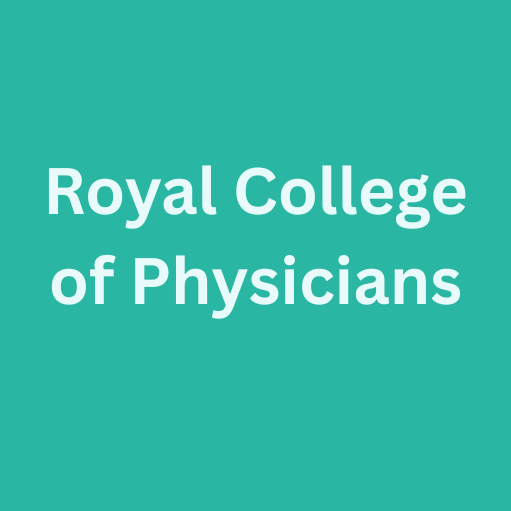
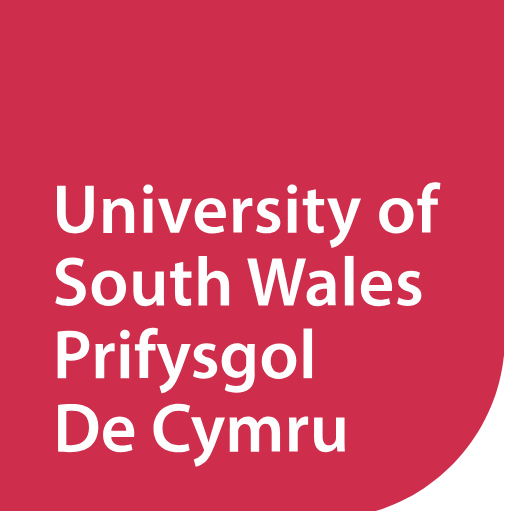
Programme Leader
The hospital plays a statewide services includes the Acquired
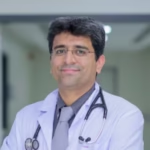
Dr. Ahad Qayyum
Tutor
Dr. Ahad Qayyum
Current post: Renowned Consultant Nephrologist Pakistan i.e. Bahria Town International Hospital Lahore.
- Nominated renal scholar by the International Society of Nephrology & Kidney Research UK and a member of the South Asian Regional Board and Educational Ambassador Committee of the International Society of Nephrology.
- Certified mentor and supervisor for ACLS and Renal Fellowship by the American Heart Association and College of Physicians and Surgeons respectively
Dr Richard Smith
Current post: Consultant Nephrologist and Clinical Director for Research, East Suffolk and North Essex Foundation Trust.
Richard has always been driven by demystifying kidney disease; helping non-specialists become more confident at treating patients with afflicting symptoms. Most kidney problems present first to non-specialists (GPs, diabetologists, emergency medicine, general medicine and general surgery). Unfortunately, training in how to manage these patients is often covered poorly in ‘general’ training programmes. This course aims to equip these clinicians with the knowledge and skills they need to confidently manage patients with kidney disease.

Dr. Richard Smith, FRCP, PhD.
Programme Leader
Why Study a Renal Medicine Master's with Learna
100% Flexible
Our courses are 100% online. No fixed study times mean you can log in and learn whenever and wherever.
Multidisciplinary – study in a group of doctors, nurses, pharmacists and other healthcare professionals.

Career Boosting
Get a University Validated postgraduate qualification in just 1 calendar year instead of 2 academic years.
40% of our alumni reported an increase in salary 2 years after studying with us.

Expert Led
All of our programmes are authored and developed by world leading experts in their field.
Our faculty are selected due to their subject expertise, experience and teaching abilities to ensure the highest standards of educational excellence.

Our renal medicine courses are specifically designed for healthcare professionals frequently seeing patients displaying symptoms of kidney disease, who aren’t renal specialists.
You should be working as a healthcare professional (HCP), either in the UK or overseas, in a role in general practice, or a secondary care HCP managing patients with systemic diseases that may affect the kidneys.
You'll learn through our flexible, interactive online platform, which allows you to engage with clinical cases, complete assignments, and collaborate with fellow students at times that suit your schedule. There's no fixed timetable—simply log in daily to participate in the week's activities.
Our teaching approach is highly interactive, using small groups of 10-20 students to foster a collaborative environment where you can engage in thoughtful discussions and receive guidance from your tutor. You'll have access to learning resources and discussion forums that encourage ongoing interaction and deeper engagement with the material.
Throughout your studies, you'll receive support from a dedicated expert tutor and our Student Support Team, ensuring you have the resources needed to navigate the course successfully.
Assessment Methods
This programme emphasises learning through active participation in case-based discussions, reflection, and real-life scenarios. Students engage with clinical cases that mirror everyday practice, fostering problem-solving and evidence-based application from the very beginning.
Across the modules, assessments are integrated with learning. Each week, you will work through two to three clinical cases, discussing and reflecting on them with peers under the guidance of an expert tutor. These discussions form the core of your learning and are also the basis for your assessments.
Our innovative teaching methods are designed to help you translate this learning into real-world clinical practice. You’ll need to regularly log in to participate in discussions, ideally on a daily basis, and commit approximately two hours per day to your studies. Our dedicated Student Support Team is available to assist with any challenges you may encounter, from navigating our online platform to managing deadlines.
How Foundational Knowledge is Developed
The programme is structured to introduce foundational knowledge through carefully designed clinical cases. Each case is crafted to highlight essential concepts and progressively deepen your understanding as you apply critical thinking and evidence-based analysis. This hands-on approach ensures that you are not only acquiring theoretical knowledge but also learning how to apply it in a practical, clinical setting.
This programme is suited for professionals who thrive in an online, discussion-based learning environment. Please note that this course focuses on interactive, applied learning through peer collaboration and case discussions. You will be fully supported, encouraged, and led through the programme to success and graduation!
Year 1
- Every week students are presented with two/three clinical case-based scenarios that are reflective of every day clinical practice and research.
- Tutors will post a number of questions and prompts to aid students in a formal discussion of each case.
- These discussions are facilitated throughout by your tutor and are then assessed at the end of every module.
For this assessment, students will work on a group assignment and/or an individual assignment.
- Group assignments are designed to hone skills in the multidisciplinary, holistic approach to modern treatments and patient management by requiring group participation in a single piece of work.
- Individual assignments are designed to hone skills in academic career progression through such tasks as reviewing papers, developing scientific posters or abstracts, peer-reviewing, social media activities, patient information leaflets and essays.
The reflective journal is used by students throughout each module to monitor personal progress. This is guided by weekly feedback from your tutor and is graded at the end of every module. The journal typically includes the following:
- Initial expectations and reasons for taking the course.
- Module and/or personal learning objectives.
- Description of events, issues and learning points within current personal practice.
- Change in every day practice due to knowledge gained on each module.
- A description of what has been learned during the module.
- Students are provided with case-based problems in the form of a one-hour timed examination.
- The exam consists of 30 'Single Best Answer' questions.
- Students are required to complete the exam online within the set time.
Year 2
This module runs over an 8 week period and is designed to develop skills in critical appraisal and knowledge of research methodologies. The module consists of mandatory formative assessment activities to support your learning and development prior to the Professional Project module.
Students will work with their supervisor to submit a professional project proposal for their chosen topic.
Students will deliver an abstract (1000 words) outlining their proposal and, if deemed necessary, develop and submit documentation for the University’s ethical committee approval.
- Students will create a dissertation, the theme of which has been developed in discussion with their tutor.
- Supervision will normally involve direct online support involving planned progress, supporting research activity and reading student work.
- Supervisors and students will agree on a communications plan, which may involve emails or online chats. Some students may employ the use of freely available chat or audio conferencing facilities for live discussion with supervisors.
- Students will have access to online forums where they can develop their research capabilities together.
- All communications with tutors will be logged on the Professional Project forum by the student, and consist of brief summaries of discussion.
Why Choose This Course?
Career Advancement
Enhance your qualifications and open doors to specialized roles in healthcare, education, and research.
Frequently Asked Questions FAQ's
As each Medical Council has their own rules/regulations with regard to Postgraduate study we recommend that you contact your local Medical Council with regard to recognition.
Upon completion of the course the University would invite you to a graduation ceremony and provide your certificate which makes no reference to the fact that the course was studied online and is therefore typically recognised the same as any other UK University qualification.
Rest assured, the overall Postgraduate Diploma carries a total of 1,200 CPD points, with the MSc an additional 600 CPD points, and all official certifications are issued directly by the University.
When you study one of our programmes you may be surprised to find that there are no lectures or seminars. Your learning will be self-directed meaning that rather than being told information you find it for yourself (with tutor guidance and support). We do this via a series of clinically rich scenarios which your tutor will post on our academic forum which you and your classmates will research, respond to and discuss.
You will be assessed through the Academic Forum, Reflective Journal and Assignments. Learning will be carried out using our online learning platform: Moodle.
You can study whenever and wherever you want - our programmes are totally flexible to fit around your other work and life commitments.
The course is specifically designed so that part of your study is the application of theory to practice in your day job.
We typically suggest that students aim to log into the Moodle platform daily. We recommend a "little and often" approach for reading, reflection and/or posting. High achieving students will typically spend 1-2 hours dedicated to their studies a day; 10 hours per week is sufficient time to spend on the platform.
Those who cannot dedicate more time than once/twice per week may struggle with the demands of this postgraduate programme.
Yes, everything is done entirely online through our learning platform, Moodle. You do not need to attend the University.
Postgraduate Diploma courses
In order to be eligible for our Postgraduate Diploma courses you need to hold a medical degree or undergraduate degree in a health related science and be working within the field that you wish to study, as the course is designed to further your knowledge within your chosen subject and is not designed to introduce these as new topic areas.
We have two intakes a year in March and September. Click the following link for the up to date application deadlines and module dates
We currently offer two discounts: the Early Bird Discount and the Action Taker Discount. The Early Bird discount allows you to save up to £500 or more, available only to self-funders and is a limited-time offer that runs for the entirety of November for the March cohort or the entirety of May for the September cohort. Our Action Taker Discount allows you to save up to £150 off for PGCert and £250 off for PGDip/2-year MSc programmes. To qualify for Action Takers, you must pay the deposit within 7 days of acceptance. This discount is not available during February and August and not available in combination with the Early Bird Discount.
For Early Bird Discounts, the discount is visible if your application and acceptance are completed within the required timeframe. For Action Taker Discounts, it will reflect once conditions are met.
Our Speciality Clinic
International Medical College Hospital a bed multispecialty tertiary care referral hospital with Outpatient and Inpatient services. It has world-class treatment
